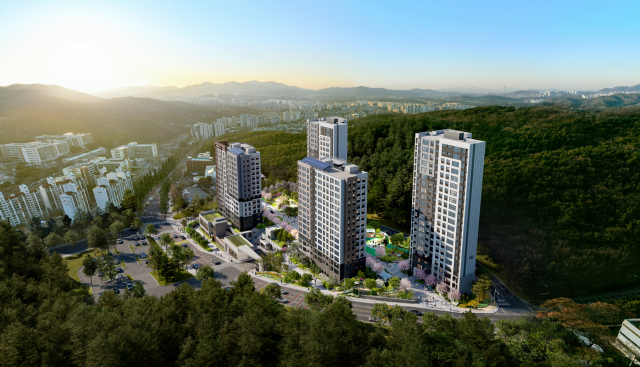For foreigners planning to live in South Korea, choosing housing (foreigner housing) is one of the most important considerations. South Korea’s housing culture is unique and there are many different options, so it’s important to understand them well. In this article, we’ll provide information on the main choices and resources foreigners should consider when choosing a place to live in Korea. This is the fifth installment of our complete guide to living in South Korea for foreigners.
1. Foreigner housing
With its unique culture, rapidly developing economy, and vibrant city life, South Korea has become a destination for many foreigners, many of whom are now looking forward to a longer stay. One of the most important tasks to start your life in Korea is finding the right foreigner housing. Korea has four distinct seasons, and there are a variety of housing options depending on where you live. Here are the pros and cons of each option, as well as some helpful advice when choosing a place to live.
2. Housing options for foreigners in South Korea
South Korea, like most countries, is a mix of urban life in mega-cities like Seoul, with more rural and tourist-oriented living. Depending on where you live, South Korea offers many different types of foreigner housing options, each of which suits different lifestyles and budgets. Here are some of the main housing options you can find in South Korea.
2.1. Single and double rooms
- Studio: This is one of the most common types of foreigner housing in South Korea. A studio usually consists of one room and includes a kitchen and a bathroom. This type of living space is popular with students and single professionals. A studio in a foreign country is called a studio in Korea. However, since studios are usually located in a building called a villa, they have good access to the city center, but the living space can be a bit cramped, and depending on the building, there may be noise problems from neighbors.
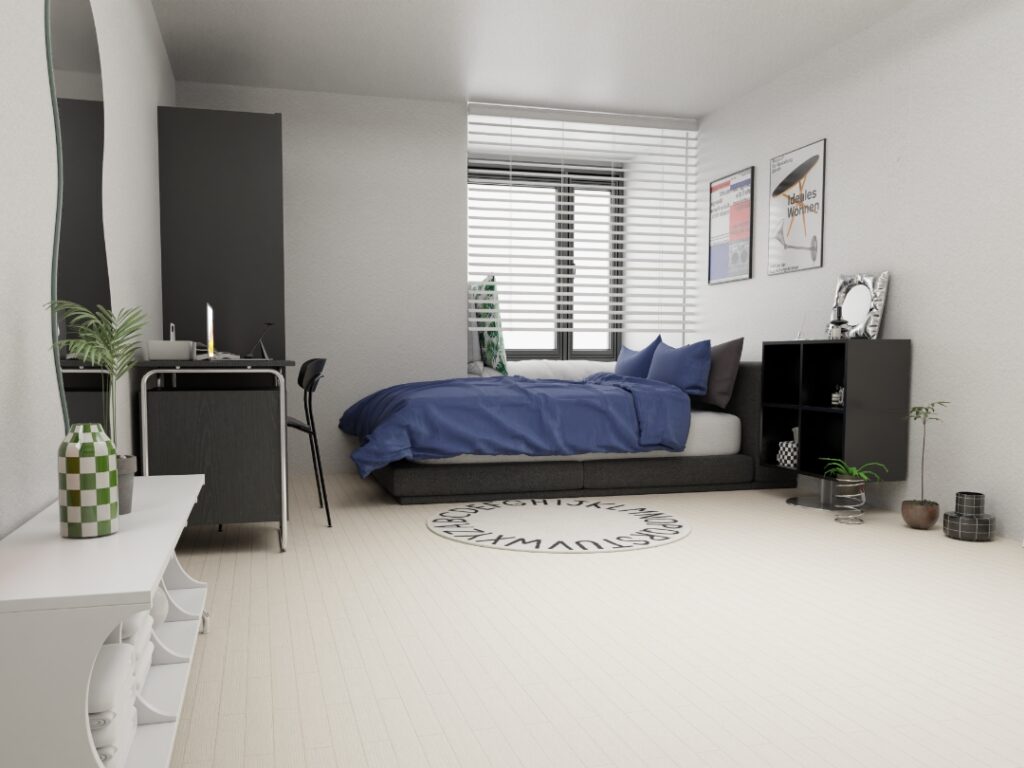
- Two rooms: These offer a little more space than a studio, often with an extra bedroom or separate living room. Two Rooms are perfect for individuals or couples who want a little more living space. They offer a higher quality of life than a studio because they’re more separate, and they’re usually rooms within a villa building.
2.2. Officetel
An office space is a modern form of housing that combines living and working space. This type of housing is typically located in city centers or business districts and is often equipped with the latest facilities and amenities. They’re popular with professionals who want to live close to their workplace. They’re similar in appearance to apartments and often have separate doormen, making them a safer place to live when compared to studios and villas.
However, they’re usually more expensive than studios, and you’ll have to pay an additional fee on top of the rent, called a management fee. From a foreigner’s perspective, they’re also a good option for long-term expats, as they’re often located in convenient transportation locations and are more affordable than apartments.
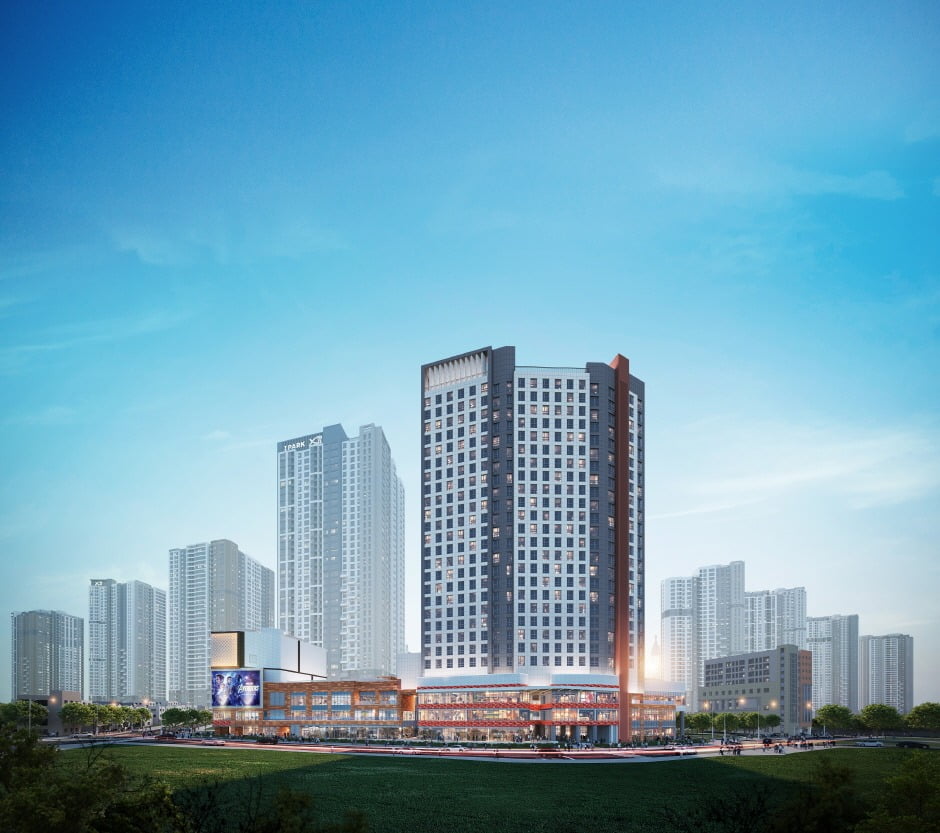
2.3. Villas, apartments, and single-family homes
- Villa: In South Korea, a villa is a residential space, usually located within a small building. Villas come in a variety of sizes and shapes, and are ideal for people who want an independent living space at a relatively low price. Villas are typically no more than five stories tall, and within a villa, there may be more than one room, two rooms, or three rooms, depending on the configuration of the space. In terms of foreigner housing, one- and two-bedroom units are common in villas.
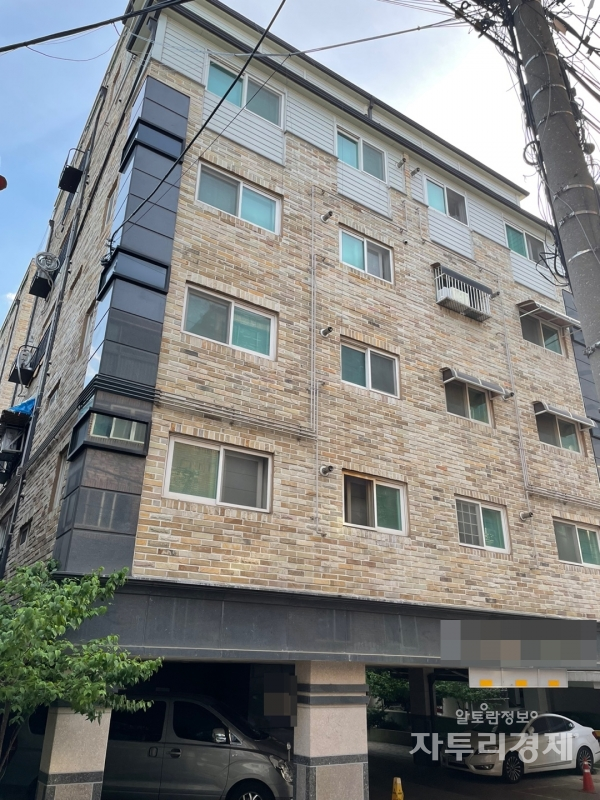
- Apartments: Apartments in South Korea are homes located in large residential complexes, and are one of the most popular forms of housing in South Korea. Apartment complexes usually have a wide range of amenities and community facilities and are popular with families. Each apartment complex has its own management office and a large staff to provide communal care, making it a preferred and safe place to live in the city center.
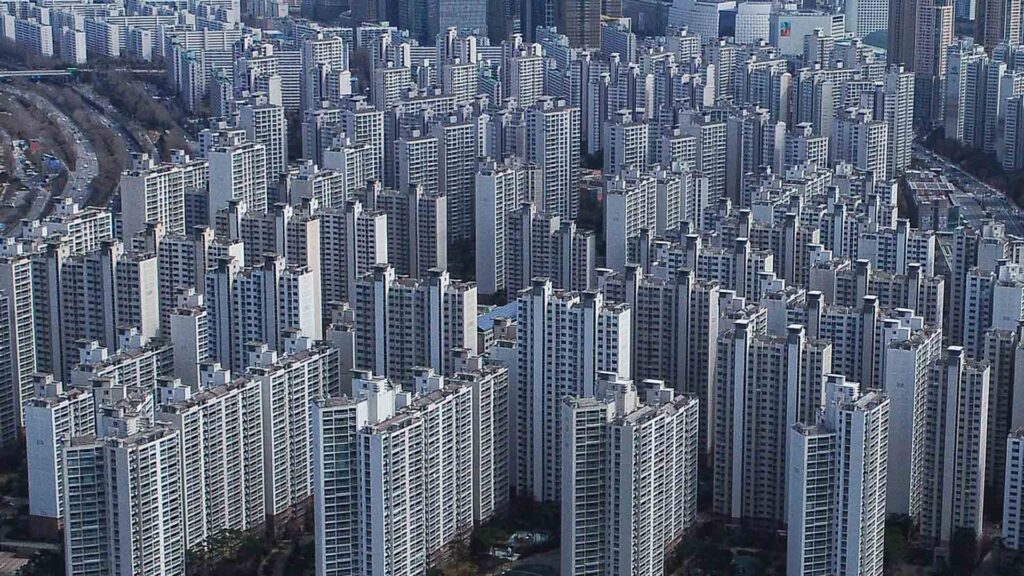
- Single-family homes: This is a type of housing that is now rarely found in favor of apartments, offices, and villas, but it is the equivalent of a detached house in foreign countries. Some neighborhoods still have single-family home complexes, while others build them for retirement or as part of new urban developments. While this is an option sometimes chosen by foreigners who are used to living in a single-family home in a foreign country, it is not a good choice for short-term stays because it requires the renter to take care of the entire house, including maintaining the garden if there is one.
2.4. Boarding(Gosiwon) and lodging(Haseok)
- Gosiwon: A low-cost housing option that includes a very small private room with basic furnishings. They’re often suitable for students or working professionals on a budget. You’ll often have to use a shared kitchen and bathroom. They don’t require a large deposit and you pay rent monthly, making them an easy option for foreigners. However, the space itself is usually quite small, with just a single bed and a desk, so be sure to look at the size of the room when choosing. Gosiwon was literally designed as a space for studying, but nowadays, there are quite a few people who live here due to the low rent. There is usually one caretaker on duty, so safety is at a minimum.
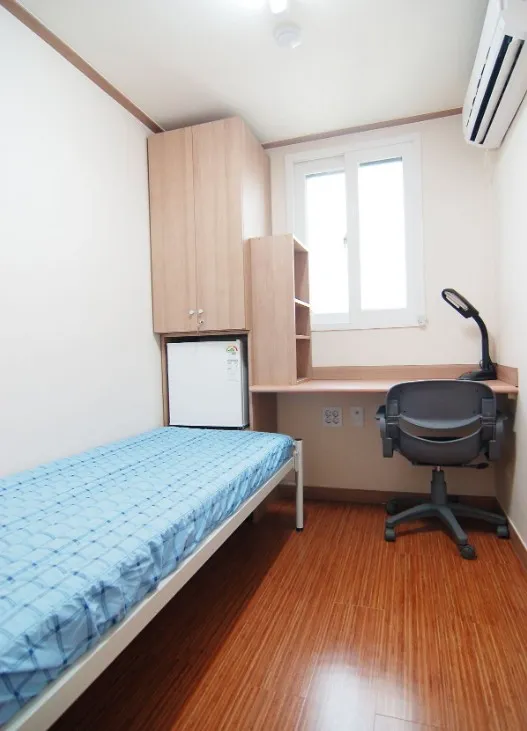
- Haseok: Haseok is a service that includes room and meals, usually provided by a family. It offers privacy and home-cooked meals, and can be a good option for foreigners who want to experience Korean home culture. However, in recent years, hagwon has become much less popular, with only a few universities keeping it alive. It is characterized by having a small private space, such as a gosiwon or studio room, and a common area where you can eat meals.
Each foreigner housing option has its own advantages and disadvantages, and you should consider location, cost, and your personal lifestyle and needs when making your choice. Living close to the city center can be more convenient but more expensive, and conversely, living farther away from the city center can be quieter and less expensive, but transportation and accessibility can be inconvenient. Therefore, it’s important to take the time to explore your options and, if possible, visit the space in person before choosing a place to live in South Korea.
3. Considerations for choosing a residential space
If you’ve been thinking about choosing one of the living space options in South Korea, now you can finalize your decision by considering your personal lifestyle, budget, and the location of your daily activities. Below, we’ll detail the main things to keep in mind when choosing a living space.
3.1. Location and accessibility
One of the most important factors when choosing a place to live is location. In particular, proximity to work or school, access to public transportation, and nearby amenities can make a big difference in the convenience of your daily life. If living in a city center is important to you, then a place in the heart of the city should be your first choice. Otherwise, convenient transportation should be your next choice.
- Distance to work or school: A shorter commute to work or school can make your daily life less stressful. On the other hand, areas outside the city center or in the suburbs can offer more living space at a lower price, but may require longer travel times. In Seoul, a place within an hour of public transportation is considered highly accessible. When choosing a neighborhood, consider the amount of time you’ll need to spend traveling to and from your primary destinations.
- Public transportation accessibility: It’s important to choose a location with easy access to public transportation facilities like subway stations and bus stops. The convenience of public transportation is an important consideration, especially for people without a car, and for foreigners, subways are often a more important mode of transportation than buses. It’s a good idea to find a home within walking distance of a subway station if possible, or even if not, within easy reach of a town bus.
- Nearby amenities: Accessibility to various amenities for your daily needs is also important, such as supermarkets, hospitals, pharmacies, banks, restaurants, and more. Having these facilities nearby will make your life much easier. You don’t necessarily need to have all of these things in your neighborhood, but with the current culture of home delivery and courier services, it’s important to choose a location that fits your primary lifestyle.
3.2. Budget
One of the most decisive factors when choosing a place to live is your budget. The cost of foreigner housing is not just the rent, but also includes various expenses such as management fees, utility costs, parking fees, etc. Korea does not yet have a thriving short-term rental market (less than one year) for foreigners, so places like the aforementioned studios, villas, apartments, and single-family homes require a minimum of one year, and usually two years.
On the other hand, places like gosiwon can be rented for as little as 6 months, and in areas with a large foreigner population, some landlords allow for shorter contracts. Otherwise, you can use places like Airbnb to rent for as little as 1 month. Length of stay is ultimately the first important factor in your budget, so if you want to live in a place you know, think about the length of your stay first.
- Rent: Rent can vary greatly depending on the type of foreigner housing, location, size, and more. A studio or high rise might be relatively inexpensive, while an office building or apartment might be more expensive.
- Management fees and utilities: Most apartments and offices charge a management fee, which covers services such as building maintenance, security, and cleaning. You’ll also need to factor in the cost of utilities such as electricity, gas, water, and internet.
- Deposit and contract terms: Housing contracts in South Korea often include a large security deposit (called a security deposit). Check the terms of the contract carefully and make sure you clearly understand the length of the lease, conditions for returning the deposit, etc.
3.3. Lifestyle
Your personal lifestyle and preferences are also important factors in choosing a living space. For example, if you prefer a social life, an office in the city center might be right for you, while a small villa or studio might be better for you if you prefer quiet and independence.
3.4. Safety and security
The safety and security of your living space is also an important consideration. It’s a good idea to check the building’s structural safety, fire protection, security systems, and local law enforcement. Korea is generally safe due to good public security, but apartments and offices with extra safety management, i.e. security guards, are the best options.
3.5. Terms and legal matters
It’s common for rental contracts in Korea to be brokered by a professional agent, called a real estate agent, between the landlord and tenant. For stays of less than six months, you can pay directly through services like Airbnb, but we recommend using a real estate agent for contracts of at least one year. Before signing a rental agreement, it’s a good idea to carefully review all the terms of the contract, and seek legal advice if necessary. You should clearly understand all the details, including the length of the contract, security deposit, rent increases, and conditions for terminating the contract.
When choosing a place to live, it’s important to weigh these different considerations together to make the best decision. If possible, physically visiting the area, checking out the surroundings, and talking to local residents is also a great way to gain useful information.
4. Conclusion
Finding the right foreigner housing is an important part of starting your life in South Korea. It’s important to understand the different foreigner housing options, their features, and make the best choice for your personal needs and budget. We hope this article will help you choose a place to live in Korea. Next time, we’ll look at more detailed rental arrangements such as buying, renting, and leasing..

